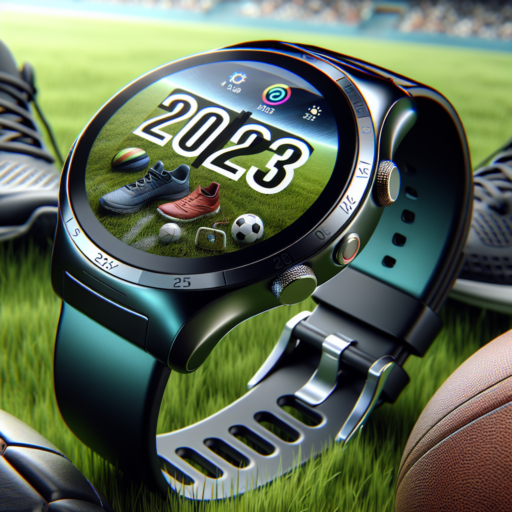What is the best heart rate monitor for runners?
Finding the best heart rate monitor for runners is crucial for tracking performance and enhancing training efficiency. While there’s a wealth of options on the market, pinpointing the optimum choice depends on a combination of accuracy, comfort, and connectivity features. Runners looking for a reliable heart rate monitor should prioritize devices that offer real-time data, are comfortable for long-distance runs, and integrate seamlessly with other fitness tracking tools.
Key Features in a Heart Rate Monitor for Runners
- Accuracy: A paramount feature, ensuring the heart rate data is precise and reliable.
- Comfort: The device should be comfortable to wear for long periods, not causing any irritation or distraction.
- Connectivity: Easy integration with smartphones, sports watches, and fitness apps enhances the utility of the heart rate monitor.
- Battery Life: Long battery life is essential, especially for runners who engage in extended training sessions.
The best heart rate monitor for runners excels in delivering precise heart rate readings, boasts an ergonomic design for prolonged comfort, and provides robust connectivity options for a comprehensive workout analysis. Whether opting for a chest strap model for its superior accuracy or a wrist-based device for convenience, the decision should align with the runner’s specific needs and preferences.
Is a heart rate monitor useful for running?
When it comes to optimizing your running performance and overall fitness, understanding the role of a heart rate monitor can significantly influence your training outcomes. These devices, designed to track your heart rate in real-time, offer insights into your cardiovascular health and the intensity of your workouts. But how exactly do they benefit runners?
Personalized Training Zones
One of the key advantages of using a heart rate monitor while running is the ability to identify and train within specific heart rate zones. This tailored approach ensures that you are exercising at the right intensity to meet your fitness goals, whether that’s burning fat, improving endurance, or enhancing cardiovascular health. By monitoring your heart rate, you can adjust your pace or exertion level to stay within these optimal zones, making your training sessions more efficient and effective.
Monitoring Recovery and Preventing Overtraining
An often overlooked benefit of heart rate monitors is their ability to gauge recovery and prevent overtraining. By observing trends in your resting heart rate and heart rate variability over time, you can assess how well your body is recovering from previous workouts. A consistently elevated resting heart rate may suggest inadequate recovery or the onset of overtraining syndrome. Therefore, runners can use this data to fine-tune their training schedules and rest days, ensuring they allow adequate recovery to foster performance improvements without risking injury or burnout.
In essence, while the usefulness of a heart rate monitor for running might vary depending on individual goals and preferences, its role in providing detailed feedback about your body’s response to exercise and its capacity for aiding in precise training adjustments is undeniable. Through tracking heart rate, runners gain valuable insights that can help tailor their training for maximum efficiency and safety.
How can I monitor my heart rate while running?
Monitoring your heart rate while running is crucial for optimizing your workouts and guarding against overexertion. With the array of technological solutions and traditional methods available, keeping an eye on your cardiovascular performance has never been easier. Understanding your heart rate can help you maintain the ideal intensity level, ensuring you’re burning fat efficiently or improving cardiovascular health.
Using a Heart Rate Monitor
One of the most effective ways to track your heart rate is by using a dedicated heart rate monitor. These devices come in various forms, including chest straps and wristbands, and provide real-time data. Chest strap monitors are known for their accuracy, as they’re placed close to the heart, while wristband models offer convenience and comfort. Most of these devices also connect to smartphone apps, allowing you to analyze your performance and progress over time.
Smart Watches and Fitness Trackers
Another popular option is using smart watches and fitness trackers. These wearable gadgets not only track your heart rate but also offer a wide range of features designed to enhance your running experience. From GPS tracking your route to estimating calories burned, these devices can provide comprehensive insights into your workout. Make sure to select a model that includes a heart rate sensor for continuous monitoring.
Regardless of the method you choose, regularly monitoring your heart rate while running can give you valuable insights into your health and fitness progress. By understanding how your heart responds to different intensity levels, you can tailor your workouts for maximum efficiency and safety.
Is a 190 heart rate bad while running?
Understanding your heart rate during physical activity is crucial for optimizing workout benefits while ensuring safety. A 190 heart rate while running might raise eyebrows, but several factors influence whether this is deemed bad or acceptable. It’s imperative to assess individual health status, running experience, and intensity of the run.
Firstly, the age-based maximum heart rate formula (220 minus your age) can provide a rough estimate of your upper heart rate limit during exercise. For someone young and in excellent physical condition, reaching a heart rate of 190 beats per minute (bpm) might fall within their expected range, especially during high-intensity activities. However, for individuals beyond their early twenties or those with underlying health conditions, a 190 bpm could signify overexertion.
Moreover, the concept of heart rate zones is essential for understanding the implications of a 190 heart rate during your run. These zones range from light intensity, promoting fat burn and endurance, to maximum effort, which enhances athletic performance but is sustainable for only short periods. It’s crucial to recognize your personal objectives and adapt your running intensity accordingly, ensuring a heart rate that aligns with your fitness level and health goals.








